The attempts by Palestine to obtain recognition at the UN and in other countries is a direct result of failure to achieve any progress in past direct peace talks with Israel.
Israel even suggested that the treaty could effect future relations with the Vatican and said it would study the agreement. In spite of this negative reaction from Israel, Gallagher said he hoped that in some way the treaty might help to end the Israeli-Palestinian conflict. He noted that the conflict caused suffering to both sides. Gallagher also said that the treaty could serve as a model for relations between Christian minorities within other Mideast countries. Unlike Israel, and its ally the US, the Vatican applauded the UN General Assembly decision in 2012 that recognized a Palestinian state. Al-Malki praised the agreement as historic and as recognizing the right of the Palestinian people, to self-determination, as an independent state free from the shackles of occupation. However, the treaty hardly changes the situation on the ground where Israel is still an occupier and in control. The US opposes recognition of a Palestinian state except through direct negotiations with Israel. Most western European countries have held off recognition but this may change if there is no progress on peace talks as appears to be the case at present. The treaty exhibits the determination of Pope Francis to have the Vatican become more proactive in foreign policy. Francis was instrumental in helping to broker the historic restoration of diplomatic ties between the US and Cuba. Archbishop Gallagher called for resumption of direct talks between Palestine authorities and Israel to reach a two-state solution. There are about 100,000 Catholics of both Roman and Greek rites in Israel and the Palestinian territories, most being Palestinian. Already 135 members of the 193 UN members recognize Palestine. 160 members recognize Israel. Last October, Sweden became the first major European country to recognize Palestine. Sources: http://www.trust.org/item/20150626110622-51at3/?source=fiOtherNews2 http://www.nytimes.com/2015/06/27/world/middleeast/vatican-palestinian-state.html?_r=0 http://www.timesofisrael.com/vatican-signs-treaty-recognizing-state-of-palestine/
3 Comments
This is the only way in which it can become independent again and able eventually to introduce programs that the people desire rather than Greece's creditors. There is no doubt there would be considerable painful adjustments to be made but recovery could come rather quickly as the low value of the Greek drachma will encourage tourism and exports.
So far there is little sign the Tsipras or Varoufakis the finance minister, are planning to default and exit the euro zone. Tsipras appears to remain optimistic that a deal can be reached. However, with the flight of cash out of Greek banks and a horrendous 24.6 per cent fall in revenues in May it would seem that Greece might be so desperate to reach a deal that it will give up its few remaining "red lines" such as pension cuts and labor market reforms. Nevertheless Tsipras said: "The blind insistence of cuts (in pensions) in a country with a 25 percent unemployment rate and where half of all the young people are unemployed will only cause a further worsening of the already dramatic social situation." Many economists would agree but that matters little. What counts are the demands of creditors. If they are not met, there will be no deal. The Greek government may think that the creditors will allow more leeway since they will end up losing billions if Greece defaults but that gamble may turn out to be quite wrong. Some think that Russia might come to the aid of Greece. However the Russian deputy finance minister said that there had been no request for funds from Greece and that in any event Russia lacked the resources to bail out Greece. As with Tsipras, German chancellor Merkel thought a deal was still possible and said to German lawmakers: "I'm still convinced: where there's a will, there's a way. If those in charge in Greece can muster the will, an agreement ... is still possible." There is strong resistance in Germany to providing any further funds to Greece and a slim majority are in favor of Greece leaving the euro zone. Saturday morning BBC News is reporting German Chancellor Angela Merkel has warned there must be a deal between Greece and its creditors ahead of Monday's emergency EU summit. Additional Sources: http://uk.reuters.com/article/2015/06/19/uk-eurozone-greece-idUKKBN0OW18Q20150619 http://www.nytimes.com/2015/06/19/business/international/greek-debt-talks-are-again-fruitless.html?_r=0 http://www.politico.eu/article/greece-must-leave-the-euro/
What makes the arrest of Mansour surprising and suspicious is that he was not arrested until after he wrote his critical report. He was allowed to enter Germany and no attempt was made to arrest him at the time.
Mansour has both UK and Egyptian citizenship and was using a UK passport. He was arrested at Berlin's Tegel airport while he was trying to board a Qatar airways flight back to Doha, Qatar, the headquarters for Al Jazeera. Mansour's lawyer, Fazil Altin said that it was "embarrassing for Germany that he is being held on these clearly political allegations". Altin claims that the Egyptian arrest warrant was not even valid internationally as Interpol had refused to grant a warrant for Mansour's arrest. The execution of the warrant could be a friendly gesture to Egypt on Germany's part or it could be a "mistake" as Mansour hopes. Egypt has already come under heavy criticism for sentencing three Al Jazeera journalists to seven years in prison last year. On Monday, Berlin prosecutors released a short statement in which they said they would not seek the extradition of Mansour to Egypt as a result of "legal aspects and possible diplomatic concerns". They ordered Mansour to be released. It appears that Mansour's arrest might have been a mistake but even so it was an embarrassing episode for Germany. Sources: http://www.digitaljournal.com/news/world/al-jazeera-says-germany-releases-detained-correspondent/article/436469 http://www.independent.co.uk/news/world/europe/al-jazeera-demands-release-of-journalist-held-by-germany-on-an-egyptian-arrest-warrant-weeks-after-cairo-signs-57bn-deal-10335252.html http://news.antiwar.com/2015/06/21/germany-arrested-al-jazeera-journalist-for-egypt-after-signing-9-billion-deal/ A US air strike recently in Libya may have killed Mokhtar Belmokhtar. At first, officials of the internationally-recognized Tobruk government insisted on Sunday that Belmokhtar had been killed in the attack but later said they were unsure who was killed.
The strike was on a farm near the city of Benghazi. According to different reports, 3 to 7 people have now been reported killed but none have been identified. US officials believed that Belmokhtar was at a meeting at the farm. Belmokhtar is not just a jihadist but a leading drug smuggler and arms dealer and has extensive connections among tribal leaders in areas where he operates. He is married to a woman from Timbuktu, Mali. If this was a business meeting with important local tribal leaders present this will make the Tobruk government even more a target of revenge attacks for allowing the US strike. American officials said the strikes were carried out by multiple F15E fighter jets. Multiple bombs were said to have been dropped on the site. Colonel Steve Warren, a defense department spokesperson confirmed that Belmokhtar was the target of the attack. Belmokhtar is perhaps best known for claiming credit for the incident in 2013 in Algeria in which 39 hostages and 29 militants ended up dead. He was prominent in the Al Qaeda in the Islamic Maghreb(AQIM) movement. Belmokhtar fought in Algeria, Afghanistan, and has been long active in the Sahara area including Mali, in smuggling, hostage-taking for ransom, and various insurgencies. Some reports say that his meeting was with members of the Al-Qaeda-linked Ansar al Sharia , the group often blamed for the attack on the US consulate in Benghazi. Often called the Prince, Belmokhtar has a reputation for being killed in attacks only to re-emerge in public and in jihadist videos. US officials may be less insistent this time that he has been killed until they have better evidence. Often jihadists themselves announce when one of their leaders are killed. I have often wondered if such reports are always reliable although in some cases there is independent evidence as well. Jihadists could announce the death of a leader to ensure that the leader is safe from further targeted killing attempts. The air strikes indicate that the US is now extending the range of its targeted killing to Libya. The attacks will be seen by Islamists within the rival Tripoli government as support for the Tobruk government and its armed forces chief Khalifa Haftar who has had previous ties with the CIA. There are peace talks ongoing between the rival government hosted by the UN. The UN special envoy to Libya, Bernardino Leon hoped to reach a deal before Ramadan this Thursday but so far there is silence about what is happening. Sources: http://www.washingtonpost.com/world/national-security/us-strike-targets-veteran-militant-linked-to-algeria-hostage-attack/2015/06/14/f701152a-12d8-11e5-9518-f9e0a8959f32_story.html http://www.nytimes.com/2015/06/15/world/middleeast/us-airstrike-targets-qaeda-operative-in-libya.html?_r=0 http://news.yahoo.com/u-conducts-counter-terrorism-strike-against-al-qaeda-204257296.html http://news.antiwar.com/2015/06/15/us-strike-in-libya-killed-three-but-growing-doubts-target-was-among-them/
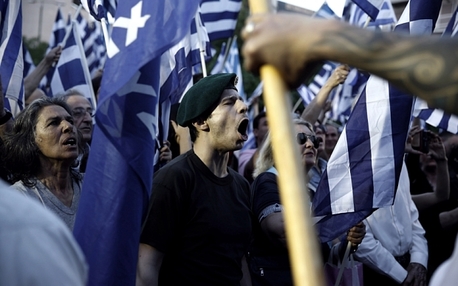 The EU creditors are also preparing for this as a possibility. A German newspaper claims that Eurozone leaders are drawing up plans for capital controls on Greece if there is no deal by this next weekend. Greece will be handed an ultimatum deal this week the paper claims. Prime Minister Alexis Tsipras condemned the unrealistic demands of creditors especially demands for pension cuts when pensions have already been significantly reduced. At the same time he said that he was open to resuming talks at any time. The Troika has been insisting for days that time is running out and that Greece needs to decide if it is going to accept the demands of creditors. The time for negotiation is over some have said. Yet Greek negotiators appear to think that they can gain more concessions from the Troika or institutions since the IMF and the European Central Bank have a lot to lose if Greece defaults. The increasing uncertainty over any solution to the Greek crisis was reflected even in US markets with the Dow Jones index continuing to fall but the declines were even steeper in European markets. Tuesday - Markets suffer as Greece teeters on the edge of Grexit - live |
Like this writer's work please donate:
Ken Hanly
Ken is a retired philosophy professor living in the boondocks of Manitoba, Canada, with his Filipina wife. He enjoys reading the news and writing articles. Politically Ken is on the far left of the political spectrum on many issues.
Archives
November 2016
Categories
All
|
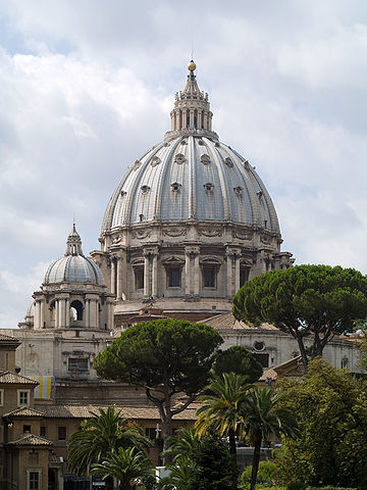
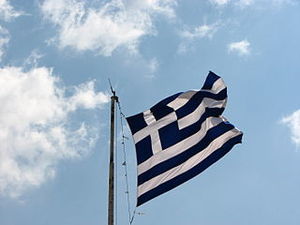
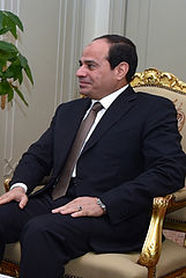
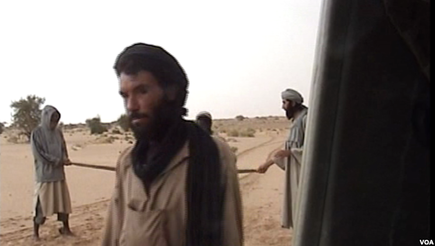
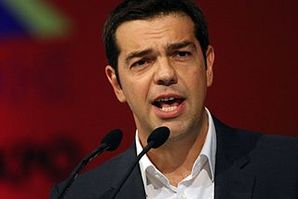
 RSS Feed
RSS Feed

